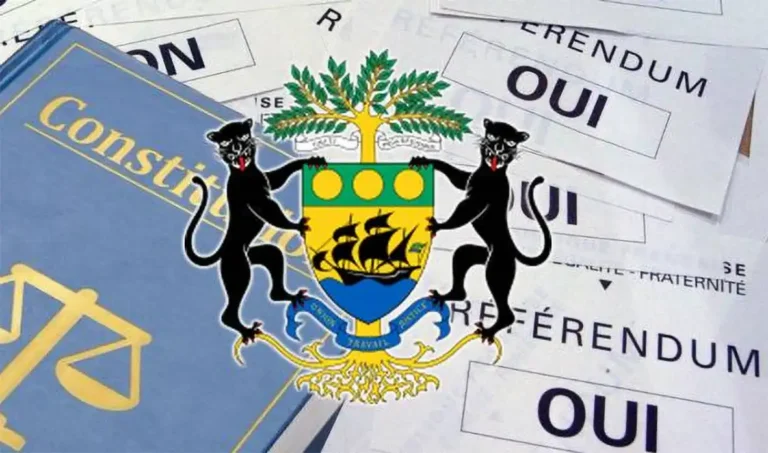Gabon’s Constitutional Court on Friday definitively validated the adoption of the new constitution approved by referendum in mid-November, with 91.64 percent of “yes” votes, its president announced.
This is seen as a key step in the return to civilian power after the August 2023 coup.
The final results, announced in open court, show fewer registered voters (853,028 instead of 868,115), fewer voters (462,166 instead of 463,066) and fewer votes cast (416,382 instead of 454,173) than the provisional figures released by the Interior Ministry, but the turnout rate – the crucial issue in this consultation – rose slightly to 54.18 percent (previously 53.54 percent).
“After examining the various results of all the commissions, the Court proclaims (that) the referendum of November 16, 2024 produced the following overall results: (…) votes obtained for the ‘yes’ 91.64 percent,” said Dieudonné Aba’a Owono, president of the Constitutional Court.
This rate is slightly lower than the 91.80 percent announced by the Ministry of the Interior the day after the referendum.
Now that the constitution has been approved, the next step will be to revise the electoral code with a view to holding presidential elections, scheduled for August 2025.
The day after the vote, transitional President General Brice Oligui Nguema, who came to power in a military coup that ended 55 years of Bongo family rule, hailed a “historic step” in the transition process.
The former head of the presidential guard has promised to return power to civilians, but has made no secret of his presidential ambitions, promising better days ahead for the oil-rich, heavily indebted country.
The 173 articles of the new fundamental law, the result of contributions gathered during a national dialogue in the spring, establish, among other things, a seven-year term of office, renewable once, with a presidential regime with strong executive power, no prime minister and the impossibility of dynastic transfer of power.
Its second article sets in stone the accession to power of the junta led by General Oligui on August 30, 2023, with the introduction of a “liberation day.”
Article 170 exempts from prosecution and sentencing “those who participated in the events between August 29, 2023 and the inauguration of the head of the transition” on September 4.
Several provisions will not be subject to future revision. These include the limit of two consecutive presidential terms, the system of elections by direct universal suffrage, and marriage reserved for two persons of the opposite sex.
TE/sf/lb/as/APA with AFP


